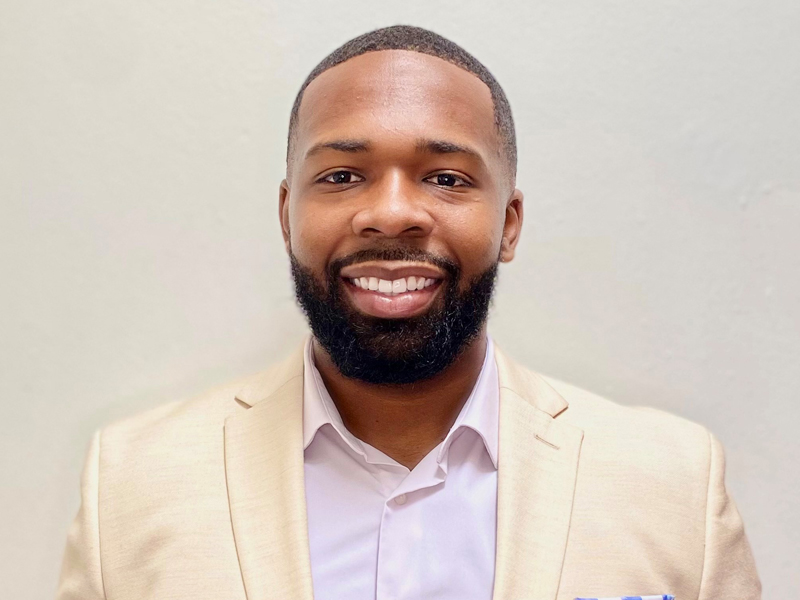CIVIL RIGHTS & CONSTITUTIONAL LAW

Civil Rights and Constitutional Law
Standing up for your civil rights takes courage and determination. Our attorneys have a passion for vindicating our clients’ civil rights in the face of determined opposition.
Whether you have been the victim of constitutional violations by a federal, state, or local government or have suffered discrimination by a public or private employer, our lawyers are here to help you stand up for yourself and assert your right to be treated fairly and recover for the harm you have suffered.
Our attorneys have experience representing plaintiffs in many types of civil-rights matters including
- Discrimination on the basis of race, gender, sexual orientation, national origin, religion, and disability in employment and public accommodations
- Excessive force by police and corrections officers including wrongful-death claims
- Unconstitutional conditions of confinement including denial of adequate medical care and sexual abuse in custody
- Title IX matters for students subjected to sexual misconduct or harassment
- Sexual harassment in employment
- LGBTQ+ discrimination
- Pregnancy discrimination and breastfeeding accommodations in the workplace
- Retaliation for opposing workplace discrimination
- First Amendment retaliation against public employees who expose government wrongdoing as well as whistleblower cases for private-sector employees
- First Amendment matters protecting the right to free speech and peaceful protest
- First Amendment matters regarding the free exercise of religion and the establishment clause
- Denial of reasonable accommodations in the workplace for disabilities or religious practices
Race discrimination
Federal law prohibits race-based discrimination in private contracts (including employment contracts) and regarding property rights. These prohibitions extend to the both the refusal to deal with someone on the basis of race or differential treatment of people of different races. We stand up for individuals who have suffered prohibited race discrimination in any context.
Employment discrimination
American workers in both the public and private sectors may not be discriminated against on that basis of a protected classification such as race, gender, sexual orientation, national origin, religion, or disability. Discrimination in hiring, promotion, termination, or other terms and conditions of employment is illegal. We represent employees who have been denied equal treatment in the workplace.
Public-accommodations discrimination
Any American business must deal fairly and equally with all people, and cannot use a person’s protected classification to refuse to serve a patron or treat a patron with hostility. We represent people who have been denied service or treated with hostility as they patronized a business.
Excessive force by police
People have a constitutional right to be free of excessive force by law enforcement. An officer’s use of force must be reasonable and necessary under the circumstances to comport with constitutional protections. When police officers use excessive force and cause harm, we can help hold them accountable.
Excessive force by corrections officers
Being incarcerated does not mean that you lose your right to bodily integrity. Whether you are detained pre-trial in a jail or are serving a prison term in a public or private facility, corrections staff cannot use unreasonable force against you. Those incarcerated must be sure to use the grievance procedures within their facility to ensure their right to bring a claim.
Sexual abuse of incarcerated individuals
Individuals confined to prison or jail are particularly vulnerable to sexual assault. Under the law, an incarcerated person cannot consent to sexual contact. Yet this kind of abuse remains far too common and is often perpetrated through force, threats, or intimidation by guards or by other incarcerated individuals. Those incarcerated must be sure to use the grievance procedures within their facility to ensure their right to bring a claim.
Denial of adequate medical care in prison or jail
The constitution guarantees that those incarcerated receive adequate medical care. Deliberate indifference to an inmate’s legitimate medical needs is a civil-rights violation. Those incarcerated must be sure to use the grievance procedures within their facility to ensure their right to bring a claim.
Gender discrimination in education (Title IX)
Since 1972, Title IX has guaranteed women and girls equal educational opportunities. Though Title IX is most typically associated with women’s sports, it also provides a basis to fight back against sexual violence and harassment in an educational space. If gendered harassment or violence interferes with a student’s ability to participate in a school’s educational programs or activities, Title IX requires the educational institution to implement appropriate remedial measures to stop misconduct. Schools that fail to do so open themselves up to liability. We represent survivors of sexual misconduct in administrative and civil proceedings, and counsel victims through criminal proceedings.
Sexual harassment in employment
Employees have the right to work without being subjected to sexual harassment. The law recognizes two types of sexual harassment: quid pro quo and hostile work environment. Quid pro quo harassment means that an employer cannot condition hiring, promotion, or other terms and conditions of employment on an employee submitting to unwanted sexual advances. A hostile work environment involves severe or pervasive misconduct such as unwanted sexual overtures, display of pornographic images, sexual touching, or other sexualized conduct in the workplace.
LGBTQ+ discrimination
Recent federal law extends employment protections under Title VII to LGBTQ+ employees. And a patchwork of state laws and local ordinances provide protections in employment as well as housing, public accommodations, and other areas of public life. We can help determine what protections you have in your location and how to enforce those rights. We also have experience assisting those transitioning with making the necessary changes to governmental documents such as school and employment records.
Pregnancy discrimination in employment
An employer cannot refuse to hire or promote, and may not terminate, an employee due to pregnancy. Nor can an employer refuse to accommodate an employee’s pregnancy-related disability, such as a lifting restriction, if it accommodates temporary disabilities in non-pregnant employees, e.g. granting light duty to an employee who injured his back in an Ultimate Frisbee tournament. We represent pregnant women who have been discriminated against in employment.
Breastfeeding accommodations in the workplace
The Affordable Care Act guarantees hourly employees reasonable break times to express breastmilk in the workplace. Salaried employees are not covered by this provision, but may have protections under state law. The Affordable Care Act also requires employers to provide a clean and private space where employees can pump.
Retaliation for opposing discrimination
People of conscience stand up for their own rights and for the rights of others. If you report discrimination against yourself or others, you are protected from retaliation under federal and potentially state law. Employers cannot retaliate against employees who oppose discrimination.
First Amendment retaliation against public employees and whistleblower protections
Public employees have a First Amendment right to express themselves on matters of public concern. Whether you voice your views on matters related to your workplace or other matters, the Constitution protects your right to contribute to the public discourse. Public employees are often in the best position to identify and report issues of government mismanagement, improper spending, or safety concerns. Both public and private employees are protected by whistleblower laws for reporting certain concerns within the workplace.
First Amendment: free speech, assembly, and petition
The First Amendment guarantees all Americans the right to participate in the arena of ideas without interference or retaliation from state actors. You have the right to speak out about what matters to you, assemble peacefully, and petition the government without fear of abuse or punishment by state actors. We represent people whose First Amendment rights have been infringed.
First Amendment: free exercise and establishment
The First Amendment protects each person’s right to practice their faith free from government interference (free exercise clause) and prohibits the government from preferring one religion over another (establishment clause).
Denial of reasonable accommodations in the workplace for people with disabilities
Americans with disabilities have certain rights to reasonable accommodations of their disabilities in the workplace. Examples of reasonable accommodations an employer may be required to provide include audio or visual tools, remote work schedules, flex time, or more-frequent break times. Employers must engage in an interactive process to determine what reasonable accommodations are appropriate under the circumstances. Our attorneys work to protect the rights of employees with disabilities.
Denial of reasonable accommodations in the workplace for religious practices
Federal law prohibits an employer from denying an employee a reasonable accommodation for a specific religious practice. For example, an employer may be required to not schedule a Jewish employee on the Sabbath, to permit a Norse pagan or Muslim employee to wear a beard, or to allow a Sikh employee to work in a traditional turban. We represent employees who seek to practice their faith without interference from their employers.
CIVIL RIGHTS LAWYERS | FREE CONSULTATION
Standing up for your civil rights takes courage and determination. Our attorneys have a passion for vindicating our clients’ civil rights in the face of determined opposition. Whether you have been the victim of constitutional violations by a federal, state, or local government or have suffered discrimination by a public or private employer, our lawyers are here to help you stand up for yourself and recover for the harm you have suffered.
If you or a loved one has been abused, sexually assaulted, or denied medical care by a corrections officer, Contact Peiffer Wolf Carr Kane & Conway for a FREE Consultation by filling out an Online Contact Form or by Calling 216-589-9280 Today.
Civil Rights Law in the news
Yes. Please call us or use our contact form to request a Free Case Evaluation. We have a national team of attorneys and staff who look forward to speaking with you.
Typically, we represent clients on contingency fee agreements. If we take your case under a contingency fee arrangement, you won’t owe our firm any legal fees unless we are able to recover money for you.
Our contingency fee agreements are usually based on a percentage of the amount we recover for our clients. The contingency fee amount is determined by the type of case, our estimate of how long it will take to resolve your case, and our estimate of the litigation costs we will advance in your case. Each engagement agreement includes the details of the fee arrangement. Questions about our fee agreements are welcomed and encouraged.
In most litigation matters, it is extremely difficult – practically impossible – to predict how long it will take to resolve a particular case. Every case is different, and we will do our best to provide you with an estimate based on your case and our experience with similar cases. Moreover, we will do our best to keep you updated and manage expectations along the way.
We handle cases that change lives. Contact us today for a FREE consultation.






